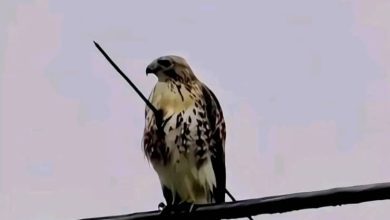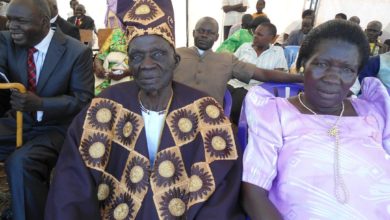
By Dr. George Okello Lucima
*****Long Story****
A tale is told among the Acoli of northern Uganda; that once upon a time, a serious famine swept through the animal Kingdom.
The animals were starving. Hare and his friends, including the leopard, came up with, and agreed, the idea that they should get rid of their mothers to save themselves. Sitting around at the fireplace, Wang Oo, they deliberated how best to do so without inflicting torture, too much pain, or spilling blood. They decided that they would wrap their mothers in sacks and throw them alive into the river.
On the appointed day, the friends converged by the river to carry out their common will and decree, to drown their mothers, whom they thought had become unbearable burdens amidst acute food scarcity. Tears in their eyes, sobbing, and moaning with quivering voices, they hesitantly took their positions by the river bank and the count down began. Heave-ho, they all hurled their gruesome packages into the fast flowing river, at once.
The crypts bearing the mothers of the other animals all sank immediately, but the one for Mr Hare swept along rhythmically, with the ebb and flow of the swift currents of the river. All the other animals burst out in fitful wails for their doomed mothers. But Mr Hare was is excited self, hopping about, up and down, praising his mother for being a skilful swimmer.
What his friends didn’t know was that, Mr Hare had thrown a mortar and pestle into the river, instead of his mother. He had safely hidden her away in a cave in the mountains, with a stash of food, water, milk and honey, enough to last two seasons.
As days wore on, things progressively became bleaker and bleaker for the animals. The rains had continuously failed; so drought and famine ravaged the land. The circle of friends around Mr Hare were famished, walking skeletons. Surprisingly, Mr Hare was looking well fed and untroubled, amidst such grave calamity.
Since throwing their mothers into the river, Mr Hare had affected some curious habits. He would routinely steal away from his friends; or if they were walking together, he would excuse himself to go answer the call of nature. And when his friends inquired why he took so long, he often claimed he had diarrhea. What was happening is that Hare would secretly visit his mother in the cave to eat and drink to his fill. Afterwards, he would return to the group to share whatever little communal meal was there for the day. To his credit, he would only eat a morsel, pretending that he had a stomachache.
Hare’s escapades, good health, and cheerful spirit, in the face of loss and great suffering, raised suspicions in the minds of his friends. They were still sincerely grieving the loss of their mothers and stricken by starvation. They suspected something was amiss about their friend Hare, and resolved to spy on him. Stealthily, they followed him to the cave, even as he took several long, meandering, labyrinthine detours. To their amazement, they discovered that Hare’s mother was alive and well; even serving him a sumptuous dinner.
Grief – stricken, feeling betrayed and fooled, the friends retreated at once, to a meeting to decide the fate of Hare and his mother. It was resolved that Hare’s mother should be killed, since it was his idea that the animals should rid themselves of their mothers.
But the friends decided to spare Hare, so he could also suffer as they did. The job to smother Hare’s mother was left to the Leopard, who wasted no time later that evening. Excusing himself to go answer nature’s call, he stalked his way into the cave, where Nyar Rwot, Hare’s mother, was busy sealing off honey in ‘abino’ pots for storage until next year.
Without any preliminary niceties, the Leopard pounced on, and promptly strangled, Hare’s mother. To fool his devious friend Hare, Lepoard shaved Hare’s mother’s head and smeared with ‘paala’, blood red ochre; and laid her out on her sleeping cow hide, in sleep posture, and slid her ‘dul’, a chiselled log the Acoli grandees use as a pillow, under her head; and stuck a smoking tobacco pipe in her mouth.
As usual, Hare crept away from his friends that evening, taking care to zig zag his way to the cave, to throw any would -be- trackers off his trails. When he got there, he saw his mother resplendent on her sleeping cow hide. He called out to her; “Nyar Rwot, tin idee ba maa!”. But there was no answer. He proceeded to where his food would normally be waiting for him. There was nothing. He checked the hearth, but it was cold; seemingly, no fire had been lit there for the day.
Exasperated, Hare sauntered to where his mother lay and tried to shake her awake. “Nyar Rwot! Nyar Rwot! Tin inino ngo kit man!”; Hare entreated, inquringly. But his mother was stiff and cold. It then dawned on him that she was dead. There were even tell- tale serrated marks of leopard claws on both sides of her neck, below the jaw, with caked blood over the wounds.
Mr Hare immediately sank to his knees and wept uncontrollably. He was incensed and bitter; aware he was helpless, and could not avenge the murder of his beloved mother by the blood thirsty canine, the leopard.
For days, Hare never made any excuses to go anywhere from his friends; they too, pretended as if they knew nothing. He ate more of the food at the fireplace, and grieved for his mother secretly.
As days went by, Hare grew more and more sad and miserable. At the fire place, he would often sit in the direction of the wind, so smoke blew into his face, and he would sob for his mother, but pretended it was the smoke that was making him teary. His friends would tell him to shift position, but no sooner had he moved, than when he returned to where the smoke was blowing. This was to disguise his grief and tears for his mother.
One evening, unable to contain their anger anymore, the friends told Hare off. It was the Leopard, who spoke up: “My friend Hare”; he growled. ” Don’t fool yourself. You mourn your mother openly if you want. We know that’s what is bothering you, not the smoke. You tricked us to kill our mothers, while you hid yours away. You hypocrite!”; the feline glared, with fangs and claws bared; and sparkling, yellow eyes glaring, and rearing to to pounce on his erstwhile friend.
As if seized by some meteoric, epileptic attack, Hare gave in to loud and fitful wailing for his mother, and perhaps, for the follies and for the infamy of friendship and animal vulnerabilities.




